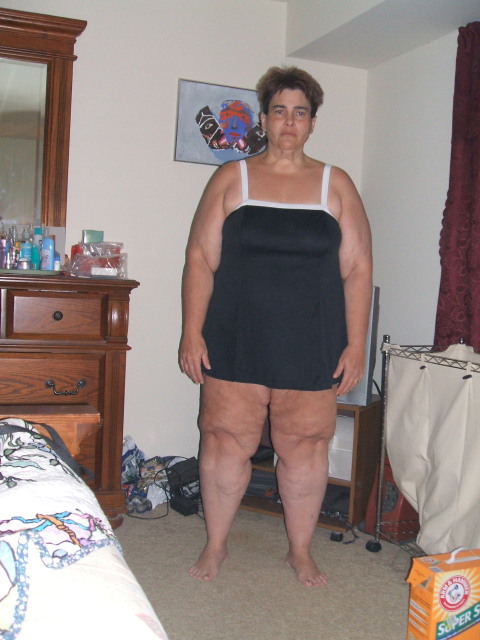which surgery to have
Question
I can't decide which surgery to have. I signed up for Rouex y but went to nutrition and after surgery class and all of the timing of everything that needs to be done overwhelmed me. Every 15 min you need to be either sipping water, taking a pill which have to be spread out on and on, protien and not mixing things calcuim with vitamins etc etc on and on. I think it is too much for me. It is also a longer recovering period and is so limited for the first year. I was prepared to eat smaller quantities of food but not prepared to totally erase many foods. I am 80 lb overweight
I have type 2 diabetes so that is why I thought Rouex y - I also don't eat large quantities so band would not work well for me.
DS switch doctor thought would be great for me but BMI she said was not high enough.
So considering sleeve but am confused and wondering if I would really lose with it. Wondering if I have a sleeve and then have to have revision if insurance would not pay as it says one bariatric surger lifetime
very stressed as my date for surgery was to be 7/27 but may need to change as I can't figure out what to do
Doctor can't come right out and tell me what to do but I think if she could she would say Rouex y
Hi Elaine:
It's a really tough decision, and I know it can cause you a lot of stress. I do know that they are doing the "switch" part of the DS on non-MO type 2 diabetics--so I'm not sure if your DS surgeon is aware of that. I don't believe they do a sleeve on them, though--just the intestinal rerouting bit. So, you could ask about having a larger sleeve along with the malabsorption. You may want to consult with other DS surgeons in your area to see what they recommend.
A lot of people with the Sleeve, especially if they are a lower BMI, are very very successful. There has even been great type 2 resolution. In terms of lifestyle, it's definitely a smaller quantities type surgery--but you don't have to worry about dumping, etc. You still need to take vitamins and have blood work for life--similar with all of the surgeries. Just be sure to ask your surgeon about which bougie size s/he uses. Smaller is generally better (32 or 34 French).
Roux-en-Y can be very successful for Type 2s as well, but if you don't think the diet/vitamins are something you can live with for life--then you're right that it's probably not the right surgery for you. Dumping does often go away after a year--and even with that, not everybody dumps (I think it's around 70%).
If I were you, I'd post on some of the Obesity Help boards--DS looking for lower BMIs, VSG, and the general RNY board and see what info others can tell you. Try, try, try to speak to people who are past the honeymoon, and preferably 3-5 years out or more. The one good thing about the VSG is that should you need a revision going forward, it's not considered a difficult operation--unlike revising an RNY (or DS for that matter).
If your main goal is diabetes resolution, then the DS has the best numbers--but you'd definitely want to work with a surgeon comfortable in doing it on lower BMIs. If your goal is to have the most normal diet, then probably the VSG would work best. (DSers have to eat high fat and high protein due to malabsorption.)
In the end, I truly believe you need to trust your own intuition. You know your eating habits, what's likely to change and what isn't. You know what you're comfortable with. In choosing a surgery, personally I also like to look at how long a person was morbidly obese/obese. The longer it's been, then in general, the more "extreme" surgery I think people need. I don't think restrictive only operations work well long-term for people who were morbidly obese for long term. But that's just my own opinion. I've yet to see anybody examine that going forward.
Good luck,
Karla
Related Articles
-
Gastric Bypass and Hernia Repair
QuestionFour weeks ago I had roux-n-y along with the repair of a
-
learning
Questionwill u ever be able to drink juice and soda after surgery
-
fistula ulcer caused from gastric bypass
QuestionI am a 43 year old that is 6 years post op. I had n
-
Tests after Bariatric Surgery
QuestionI am 1 year post-op from gastric bypass surgery. I am 54
-
22 years post-op want a reversal
QuestionHi karla my name is Brenda Wilkinson I am looking for a d
-
OHIP
QuestionDawn, My husband Dave has applied for out of country cove
- DON'T MISS
- Excess body fat
- Diabetes and RNY
- Correlations between gastric bypass and rheumatoid arthritis
- Weight loss surgery & Celiac Disease
- Chewing Gum
- Extended release medications after Bariatric Surgery
- learning
- Lap band and only 1 kidney,,
- Post-VSG protein requirements
- horrible gas, diarrhea and burping
More Great Links

